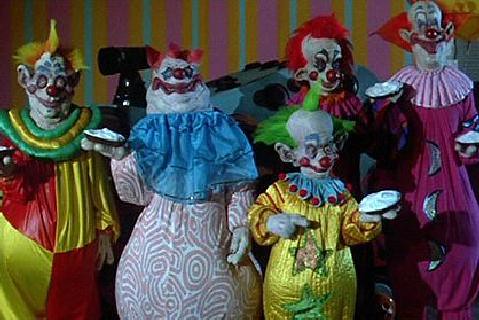I've a friend who likes to say, "
I see said the blind man, who didn't." As I remember it, he said he picked it up from his father - who attributed it to being an "old saying."
But thanks to my friend Internet, I learned today that these types of sayings can be narrowed down to a particular person who first made them famous through a literary character. Of course I'm speaking of one "Chuck Dickens." (edit: It seems likely that even if he made the technique famous, it predates him. Just wanted to clarify that.)
Chuck's book, "The Posthumous Papers of the Pickwick Club" was populated by a character named Wells who liked to say things with an amusing formulaic method which might roughly look like this:
OLD SAYING OR COLLOQUIAL OBSERVATION is
true, as demonstrated by the following punnishly accurate but didactically contrasting example.
Here's one that amused me:
"Business first, pleasure arterwards, as King Richard the Third said wen
he stabbed t'other king in the Tower, afore he smothered the babbies."
Chuck had Wells squeeze in forty-one of these gems in that onerously titled tale.
The "I see..." example is more commonly used thus:
"I see said the blind man and he picked up his hammer and saw."
Occasionally a deaf man or dog (or even
horse!) is squeezed in there too.
These kinds of ideas are variations are apparently common in the Dutch language as well and are known as "Apologetic Proverbs."
Wikipedia has a nice article on the matter, but here I quote a couple that also succeeded in amusing me:
English:
"We'll have to rehearse that," said the undertaker as the coffin fell out
of the car.
Dutch:
"Het is kruis of munt" zei de non en ze trouwde met de bankier.
(English:It's cross or coin said the nun, and she married the banker.)
Explanatory note: In Dutch "Heads or Tails" is referred to as "kruis of munt", literally meaning "cross" (i.e. religion) or "coin" (i.e. money).
At any rate, it was nice to find the embarkation point for this bit of wordplay. Any number of elaborate variations may be found in common usage and in literature - but I find knowing a bit more about their historical relevance and sourcing to be intellectually satisfying.
Further Reading:
The Tom Swift books have their own amusing word play known as "Swifties." Although amusing, they are probably on the way out because most writing teachers instruct the disuse of adverbs relative to how things are quoted or said, and the Swiftie is entirely dependent on adverbially describing the observation or quote.
Read about it here.And just for fun, I decided to try my hand at one of these things. I went to my wife and asked her for a common saying.
She said, "The grass is always greener on the other side."
"The grass is always greener on the other side," said the grave digger as he
shoveled the pile of earth.
Not terrible for my first try... I like the way that "other side" could reference both
death and at the same time prepositionally refer to the pile of earth.



